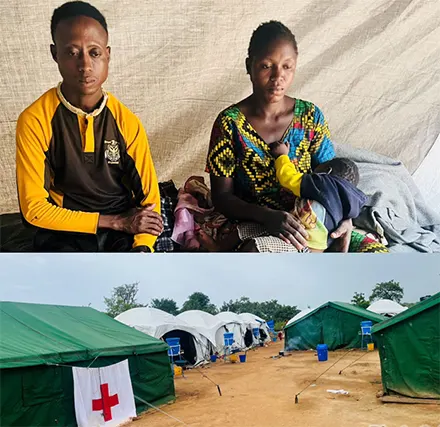Silent Suffering: The Struggles Of Persons With Disabilities In Conflict
From the outset, silently suffering persons with disabilities in conflict endure unique hardships that often go unnoticed. In the Savannah Region’s Gbiniyiri conflict, Frank Gbenichere—a 38-year-old man with a physical disability—wrestles with devastation. He, his wife, and three children fled their home when violence erupted. They hid in the bush for days, without food, until a police vehicle rescued them.
Displacement and Loss
Frank lost his farm, livestock, and means of supporting his family after fleeing their burning home. At the Sawla camp, the challenges multiply: distribution queues move fast, and his limited mobility prevents him from competing for supplies. His wife attempts to help, but even she struggles amid chaos and demands.
Health, Access, and Emotional Strain
Life at the camp brings more than physical hardship. Psychological stress builds under constant threat and overwhelming uncertainty. Access to essential services and support is minimal, as many humanitarian systems overlook the needs of persons with disabilities (PWDs).
Calls for Inclusive Humanitarian Action
Leaders within the Ghana Federation of Disability Organisations stress the urgency of inclusive aid. They want PWD-friendly distribution systems, accessible collection points, and workers trained in disability sensitivity. They also insist that persons with disabilities be involved in planning and decision-making.
International frameworks and Ghana’s own laws obligate the state to uphold the rights of PWDs during crises. The Persons With Disability Act and the UN Convention on the Rights of Persons with Disabilities require that humanitarian responses do not discriminate.





